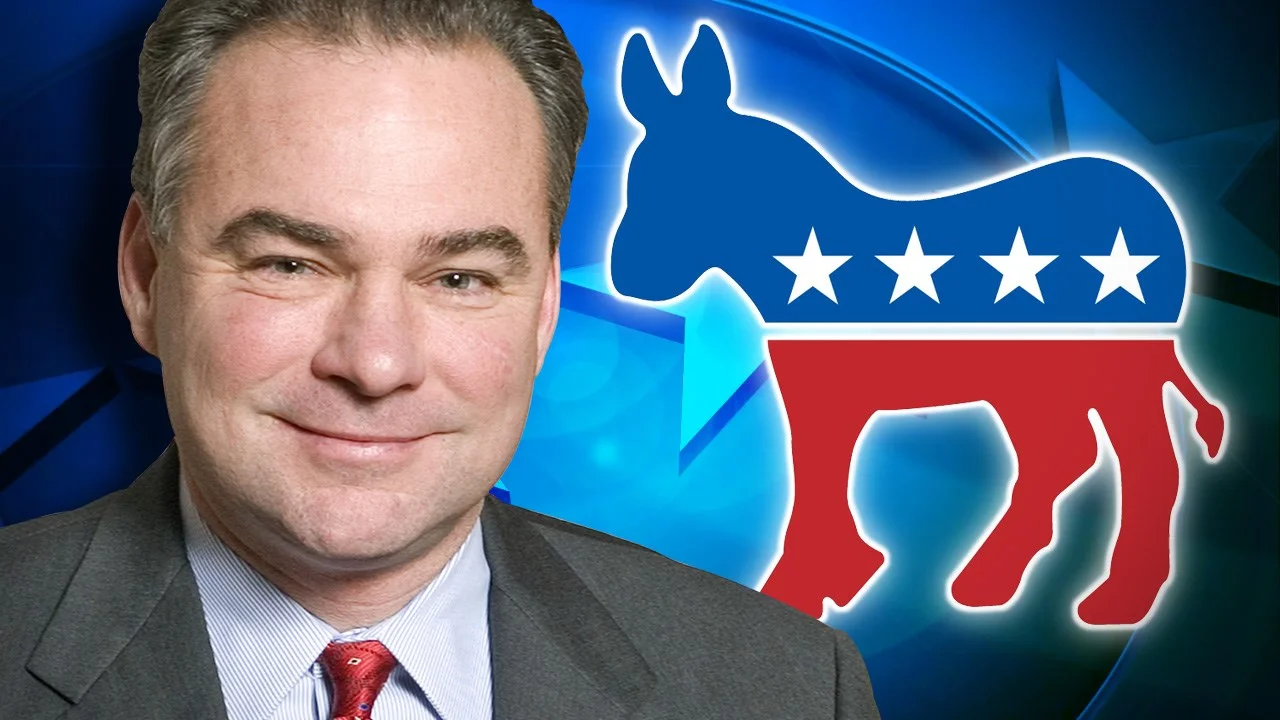Tim Kaine net worth has sparked public interest due to his long political career and role as a U.S. Senator from Virginia. Over the years, Kaine has served as mayor, governor, and vice presidential candidate, contributing to a financial profile shaped by his public service.
This article provides a comprehensive examination of his career, assets, income sources, and personal financial disclosures to offer an accurate and up-to-date assessment of his estimated wealth.
Understanding how elected officials earn and manage their wealth helps improve transparency in politics. Let’s explore Tim Kaine background and how his financial standing compares to other lawmakers.
Tim Kaine Early Life and Career
Tim Kaine was born on February 26, 1958, in Saint Paul, Minnesota, and grew up in a modest, working-class household. From an early age, he displayed a strong sense of ethics and public responsibility, shaped by his Catholic upbringing. His early experiences helped lay the foundation for a life of public service.
He earned his undergraduate degree from the University of Missouri and later graduated from Harvard Law School. During his time at Harvard, he took a year off to volunteer with Jesuit missionaries in Honduras. This humanitarian work profoundly influenced his views on justice and the importance of service.
Kaine began his legal career advocating for civil rights and fair housing laws. He moved into politics in the early 1990s, serving on the Richmond City Council. His leadership and dedication led to his election as mayor of Richmond in 1998.
Political Climb and Earning Potential
After serving as mayor of Richmond, Tim Kaine advanced to state leadership by becoming Virginia’s lieutenant governor in 2002. His steady rise continued as he took office as governor in 2006, where he completed a full term until 2010.
In 2013, Kaine began his tenure as a U.S. Senator, representing Virginia at the federal level. His disclosed income includes a senator’s base salary, adjunct teaching roles, and carefully managed personal investments.
Key Income Sources
- U.S. Senate salary: Approximately $174,000 per year
- Served as Governor of Virginia from 2006 to 2010
- Taught at the University of Richmond as an adjunct professor
Current Tim Kaine Net Worth Estimate
According to official financial disclosures, Tim Kaine net worth ranges between $800,000 and $1.2 million.
The OpenSecrets organization, which tracks political finances, listed his average net worth at about $811,000 in 2018. In 2015, it peaked at around $1.45 million, but then experienced a noticeable decline due to potential spending, market fluctuations, or revised disclosures.
External sources, such as CelebrityNetWorth, report his net worth as high as $10 million, but federal data do not support this estimate. Most of his wealth appears in retirement accounts, mutual funds, and personal bank savings, with minimal liabilities.
Assets, Investments, and Liabilities
Over the years, Tim Kaine has built a reliable yet modest financial base rooted in conservative public-sector values. His investment approach favours long-term stability, with a strong focus on retirement savings and mutual funds.
Despite his long political career, Kaine’s finances reflect a careful balance of asset growth and minimal debt. His disclosures indicate that he has avoided high-risk investments and maintains sound financial discipline.
Key Financial Details:
- Holdings in the Virginia Retirement System
- Mutual fund investments exceeding $1.1 million
- Savings accounts and bank deposits across multiple institutions
- Liabilities are estimated between $50,000 and $100,000, mostly mortgage-related
Tim Kaine Net Worth Overview Table
| Attribute | Details |
| Real Name | Timothy Michael Kaine |
| Date of Birth | February 26, 1958 |
| Age | 67 (as of 2025) |
| Height | Not publicly disclosed |
| Weight | Not publicly disclosed |
| Partner | Anne Holton (m. 1984) |
| Nationality | American |
| Birthplace | Saint Paul, Minnesota |
| Father | Albert A. Kaine Jr. |
| Mother | Mary Kathleen Burns |
Year-by-Year Financial Trends
Tim Kaine financial disclosures show that his net worth has remained in a steady yet moderate range. Unlike many of his Senate colleagues, his wealth has not skyrocketed over the years. This consistent trajectory reflects a lifestyle grounded in public service rather than private gain.
In 2015, his net worth peaked at an estimated $1.45 million before gradually decreasing. By 2018, it had fallen to around $811,000, possibly due to shifts in asset value or stricter reporting standards. Some third-party sites report it as high as $10 million, though this remains unverified.
Key Wealth Estimates: Tim Kaine Net Worth
- 2015: ~$1.45 million
- 2018: ~$811,000
- External (unverified): ~$10 million
Why Does Tim Kaine Net Worth Matter?
Understanding a politician’s net worth enables voters to assess their financial independence and ethical standing. Tim Kaine’s modest finances show that his career has been built on public service rather than wealth accumulation. This builds credibility and reinforces voter trust.
By disclosing his assets openly, Kaine reflects transparency in his political journey. His steady wealth level shows limited outside influence and avoids major financial conflicts. This supports his image as a leader who serves for principle, not personal gain.
Key Takeaways on Tim Kaine Wealth
Tim Kaine has accumulated moderate wealth over a multi-decade political career. His net worth is far lower than the average senator’s, and his investment profile is conservative. While some external sources may report higher estimates, official filings support a valuation below $1.5 million.
His wealth profile aligns with his reputation for humility and integrity in office. Compared to millionaire politicians, Kaine stands out for his relatively average financial position.
Conclusion: What Tim Kaine Wealth Says About Public Service
Tim Kaine’s financial profile tells a story that differs from that of many of his colleagues in Washington. While the average U.S. senator may be worth several million dollars, Kaine’s net worth remains relatively modest and consistent with a career spent mainly in government and education.
With most of his wealth tied to retirement savings, mutual funds, and a middle-class lifestyle, he reflects a model of transparency and ethical political conduct.
In an era when voters demand greater accountability, Kaine’s disclosures demonstrate that public service doesn’t always translate to private fortune. His financial journey reinforces the idea that some politicians truly serve for the cause, not the cash.










